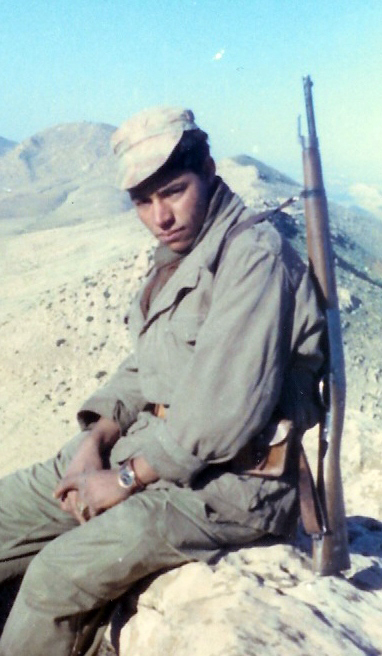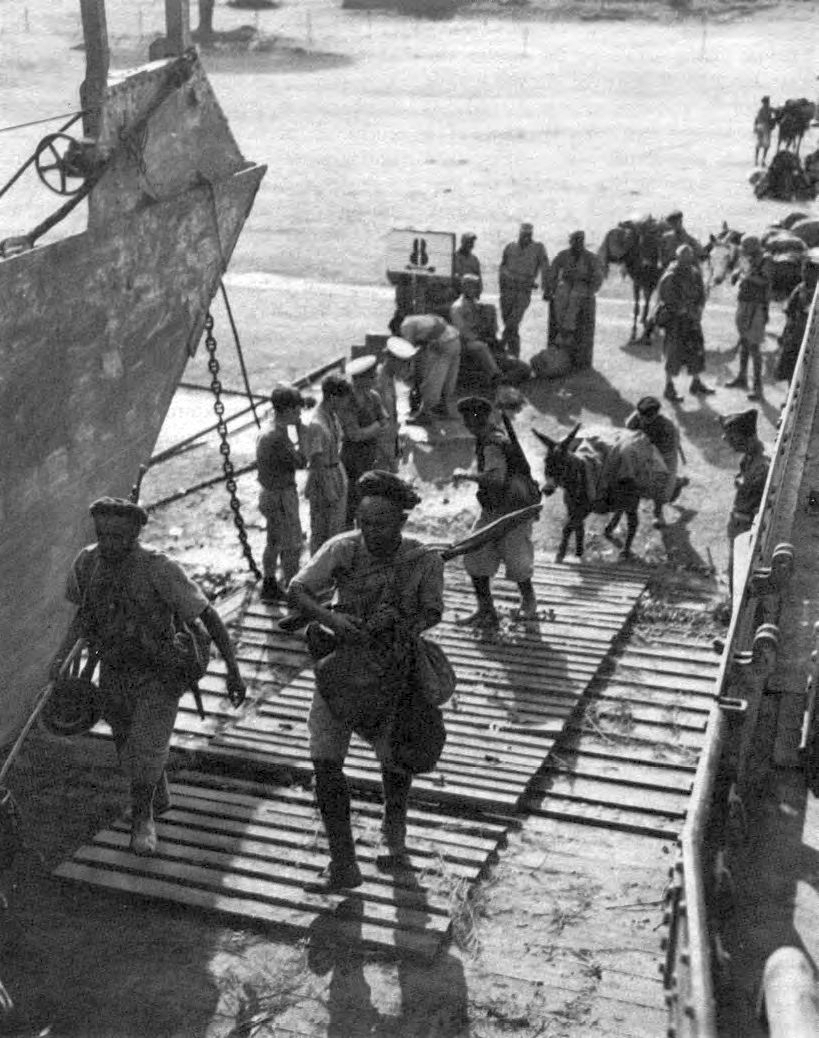|
Mokhazni
Moghaznis were auxiliaries to the ''Sections Administratives Spécialisées'' ( Specialized Administrative Sections) ( SAS) and the ''Sections Administratives Urbaines'' (Urban Administrative Sections} of the French army during the Algerian War. Numbering 20,000, they were responsible for protecting SAS whose maximum number was 688 at the end of 1958. Organization The Moghazni were organized into 30 to 40 men ''magzhen'' who reported to the district SAS officers. Many were mounted on horses who were more capable in rural Algeria. Moghazni wore standard French army fatigues with a red M1946 Bonnet de police. Personnel There were 3,500 locally recruited Moghazni in 1956, 20,000 in 1961, 15,000 in the spring of 1962. Gregor Mathias, Les Sections Administratives Spéciales en Algérie, entre idéal et réalité, 1955-1962. Paris, Harmattan/ Institut d’Etudes Africaines d’Aix en Provence, 1998, 256 p. Bibliography * Nicolas d'Andoque, Guerre et paix en Algérie. L'épopée sile ... [...More Info...] [...Related Items...] OR: [Wikipedia] [Google] [Baidu] |
Auxiliaries
Auxiliaries are support personnel that assist the military or police but are organised differently from regular forces. Auxiliary may be military volunteers undertaking support functions or performing certain duties such as garrison troops, usually on a part-time basis. Unlike a military reserve force, an auxiliary force does not necessarily have the same degree of training or ranking structure as regular soldiers, and it may or may not be integrated into a fighting force. Some auxiliaries, however, are militias composed of former active duty military personnel and actually have better training and combat experience than their regular counterparts. Historically, the designation ''auxiliary'' has also been given to foreign or allied troops in the service of a nation at war, most famously the eponymous ''Auxilia'' serving the Roman Empire. In the context of colonial troops, locally-recruited irregulars were often described as auxiliaries. Historical usage Roman auxiliaries ... [...More Info...] [...Related Items...] OR: [Wikipedia] [Google] [Baidu] |
Specialized Administrative Sections
The Specialized Administrative Sections (french: Sections Administratives Spécialisé, label=none), or (SAS), was a French civil-military program operating in French Algeria from 1955 to 1962. About The SAS was created in 1955 by the Governor-General of Algeria Jacques Soustelle to provide a hearts and minds program to provide rural Algerian villagers with practical help and provide a visible French presence thus improving their daily lives while simultaneously protecting them. Several hundred small volunteer teams led by Arabic speaking junior officers with local knowledge. The well funded SAS program covered public health, education, building, agricultural assistance and justice administration It also provided local counter-insurgency intelligence and security forces liaison. The officers were known by their headgear as "kepis bleus" and were men serving in remote areas and were protected by a handful of local Moghazni auxiliaries. Their popularity made them targets with the ... [...More Info...] [...Related Items...] OR: [Wikipedia] [Google] [Baidu] |
French Army
The French Army, officially known as the Land Army (french: Armée de Terre, ), is the land-based and largest component of the French Armed Forces. It is responsible to the Government of France, along with the other components of the Armed Forces. The current Chief of Staff of the French Army (CEMAT) is General , a direct subordinate of the Chief of the Defence Staff (CEMA). General Schill is also responsible to the Ministry of the Armed Forces for organization, preparation, use of forces, as well as planning and programming, equipment and Army future acquisitions. For active service, Army units are placed under the authority of the Chief of the Defence Staff (CEMA), who is responsible to the President of France for planning for, and use of forces. All French soldiers are considered professionals, following the suspension of French military conscription, voted in parliament in 1997 and made effective in 2001. , the French Army employed 118,600 personnel (including the Fo ... [...More Info...] [...Related Items...] OR: [Wikipedia] [Google] [Baidu] |
Algerian War
The Algerian War, also known as the Algerian Revolution or the Algerian War of Independence,( ar, الثورة الجزائرية '; '' ber, Tagrawla Tadzayrit''; french: Guerre d'Algérie or ') and sometimes in Algeria as the War of 1 November, was fought between France and the Algerian National Liberation Front (french: Front de Libération Nationale – FLN) from 1954 to 1962, which led to Algeria winning its independence from France. An important decolonization war, it was a complex conflict characterized by guerrilla warfare and war crimes. The conflict also became a civil war between the different communities and within the communities. The war took place mainly on the territory of Algeria, with repercussions in metropolitan France. Effectively started by members of the National Liberation Front (FLN) on 1 November 1954, during the ("Red All Saints' Day"), the conflict led to serious political crises in France, causing the fall of the Fourth Republic (1946–58), to ... [...More Info...] [...Related Items...] OR: [Wikipedia] [Google] [Baidu] |
Side Cap
Side or Sides may refer to: Geometry * Edge (geometry) of a polygon (two-dimensional shape) * Face (geometry) of a polyhedron (three-dimensional shape) Places * Side (Ainis), a town of Ainis, ancient Thessaly, Greece * Side (Caria), a town of ancient Caria, Anatolia * Side (Laconia), a town of ancient Laconia, Greece * Side (Pontus), a town of ancient Pontus, Anatolia * Side, Turkey, a city in Turkey * Side, Iran, a village in Iran * Side, Gloucestershire, or Syde, a village in England Music * Side (recording), the A-side or B-side of a record * The Side, a Scottish rock band * ''Sides'' (album), a 1979 album by Anthony Phillips * ''Sides'', a 2020 album by Emily King * "Side" (song), a 2001 song by Travis * "Sides", a song by Flobots from the album ''The Circle in the Square'', 2012 * "Sides", a song by Allday from the album ''Speeding'', 2017 Teams * Side (cue sports technique) * Side, a team, in particular: ** Sports team Other uses * Side (mythology), one of three my ... [...More Info...] [...Related Items...] OR: [Wikipedia] [Google] [Baidu] |
Harkis
''Harki'' (adjective from the Arabic ''harka'', standard Arabic ''haraka'' حركة, "war party" or "movement", i.e., a group of volunteers, especially soldiers) is the generic term for native Muslim Algerian who served as auxiliaries in the French Army during the Algerian War of Independence from 1954 to 1962. The word sometimes applies to all Algerian Muslims (thus including civilians) who supported French Algeria during the war. The motives for enlisting were mixed. They are regarded as traitors in independent Algeria and thousands were killed after the war in reprisals despite the Évian Accords ceasefire and amnesty stipulations. In France the term can apply to ''Franco-musulmans rapatriés'' (repatriated French Muslims) living in the country since 1962 - and to their metropolitan-born descendants. In this sense, the term ''Harki'' refers to a social group - a fraction of the French Muslims from Algeria - as distinct from other French of Algerian origin, or from Algerians ... [...More Info...] [...Related Items...] OR: [Wikipedia] [Google] [Baidu] |
Goumier
The Moroccan Goumiers (french: Les Goumiers Marocains) were indigenous Moroccan soldiers who served in auxiliary units attached to the French Army of Africa, between 1908 and 1956. While nominally in the service of the Sultan of Morocco, they served under French officers, including a period as part of the Free French Forces. Employed initially as tribal irregulars, then in regular contingents, the goumiers were employed extensively during the French occupation of Morocco from 1908 to the early 1930s. They then served in North Africa, Italy, and France during World War II between 1942 and 1945. During this period four Moroccan Tabors Groupments (GTM) were created, each comprising three Tabors (battalions), and each Tabor comprising three or four Goums (companies). Goumiers subsequently served in Indochina from 1946 to 1954. Etymology The term ''Goum'' designated a company of ''Goumiers''. It originates from the Arab Maghreb ''gūm'' and the Classical Arabic ''qawm'', designatin ... [...More Info...] [...Related Items...] OR: [Wikipedia] [Google] [Baidu] |
Regulares
The Fuerzas Regulares Indígenas ("Indigenous Regular Forces"), known simply as the Regulares (Regulars), are volunteer infantry units of the Spanish Army, largely recruited in the cities of Ceuta and Melilla. Consisting of indigenous infantry and cavalry recruited in Spanish Morocco, forming part of the Army of Africa and officered by Spaniards, these troops played a significant role in the Spanish Civil War (1936–1939). History Establishment The Regulares were first raised in 1911 as a "batallón indígena" of infantry. Their formation came at a time when the Spanish army was expanding into the Moroccan hinterland from the long-held coastal enclaves of Ceuta and Melilla. Previously use had been made of Moroccan auxiliaries as scouts and the designation of "regulars" appears to have been intended to distinguish the newly raised force as a permanent unit of the Spanish army. Officers and some NCOs were seconded from Peninsular regiments. By 1914 four Groups (''Grupos'', the e ... [...More Info...] [...Related Items...] OR: [Wikipedia] [Google] [Baidu] |
Razakars (Pakistan)
Razakar ur, , literally "volunteer"; bn, রাজাকার) was an East Pakistani paramilitary force organised by General Tikka Khan in then East Pakistan, now called Bangladesh, during the Bangladesh Liberation War in 1971. Since the 1971 war, it has become a pejorative term (implying traitor) in Bangladesh due to the atrocities allegedly committed by the Razakars during the War. The Razakar force was composed of mostly anti-Bangladesh and pro-Pakistan Bengalis and Urdu-speaking migrants who lived in Bangladesh at the time. Creation The East Pakistan Razakars Ordinance was promulgated on 2 August 1971 by the Governor of East Pakistan, Lieutenant General Tikka Khan. The Ordinance stipulated the creation of a voluntary force to be trained and equipped by the Provincial Government. This was to add to the government's forces to suppress the rebellion of people who wanted independence for the region. It is also alleged that Razakars were recruited by the Shanti Committee, ... [...More Info...] [...Related Items...] OR: [Wikipedia] [Google] [Baidu] |
Contemporary French History
Contemporary history, in English-language historiography, is a subset of modern history that describes the historical period from approximately 1945 to the present. Contemporary history is either a subset of the late modern period, or it is one of the three major subsets of modern history, alongside the early modern period and the late modern period. In the social sciences, contemporary history is also continuous with, and related to, the rise of postmodernity. Contemporary history is politically dominated by the Cold War (1947–1991) between the Western Bloc, led by the United States, and the Eastern Bloc, led by the Soviet Union. The confrontation spurred fears of a nuclear war. An all-out "hot" war was avoided, but both sides intervened in the internal politics of smaller nations in their bid for global influence and via proxy wars. The Cold War ultimately ended with the Revolutions of 1989 and the dissolution of the Soviet Union in 1991. The latter stages and after ... [...More Info...] [...Related Items...] OR: [Wikipedia] [Google] [Baidu] |
Auxiliary Units And Formations
Auxiliary may refer to: * A backup site or system In language * Auxiliary language (other) * Auxiliary verb In military and law enforcement * Auxiliary police * Auxiliaries, civilians or quasi-military personnel who provide support of some kind to a military service ** Auxiliaries (Roman military) In religion * Auxiliary bishop, in the Roman Catholic Church * Auxiliary organization (LDS Church) In technology * Auxiliary input jack and auxiliary cable, generally for audio; frequently associated with mobile device audio * Aux-send of a mixing console * An auxiliary Port is a common port found on many Cisco routers for CLI access. Other uses * Auxiliary route, also known as "special route", in road transportation ** An auxiliary route of the Interstate Highway System in the United States * Auxiliary ship is a naval vessel designed to operate in support of combat ships and other naval operations * Auxiliary (fraternity or sorority) * A marching band color guard See als ... [...More Info...] [...Related Items...] OR: [Wikipedia] [Google] [Baidu] |




